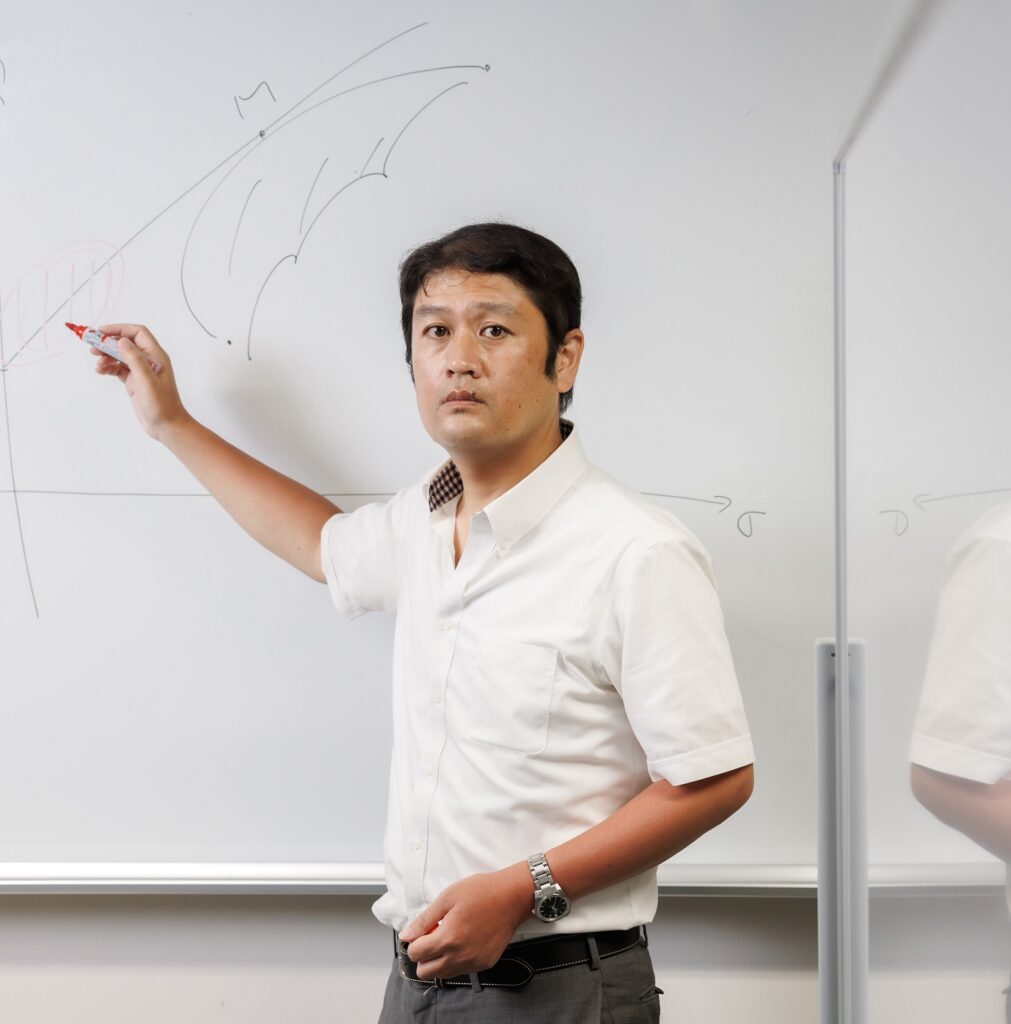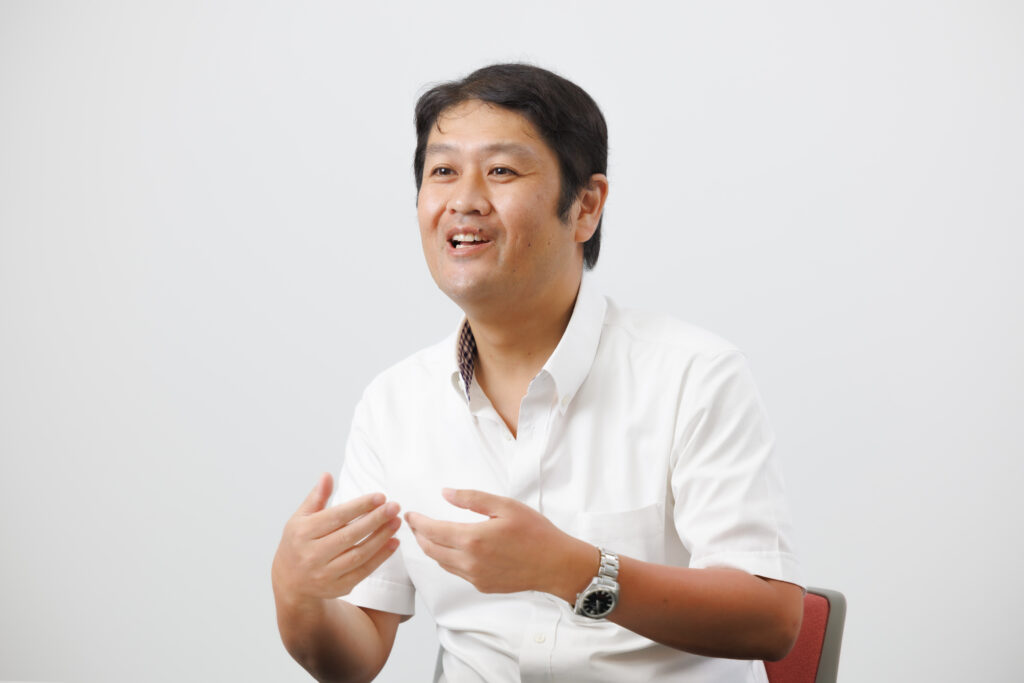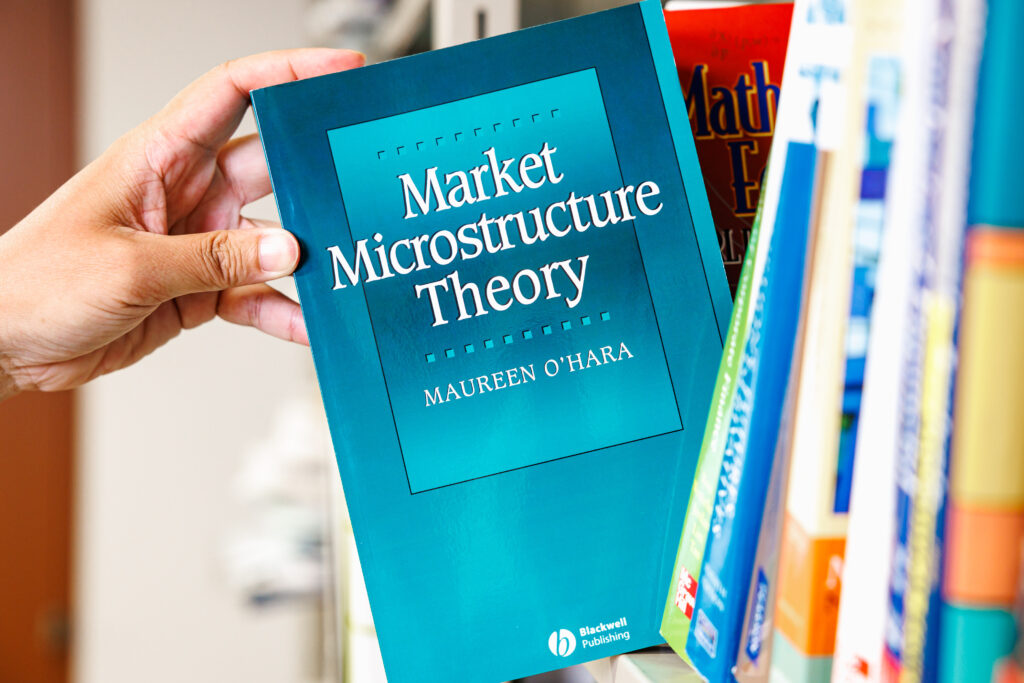
Professor Naoto Isaka teaches in the Faculty of Liberal Arts and his field of study within economics is finance. He has been researching models which explain the effects private information can have on securities trading and corporate value. What is needed for the development of financial markets?
There are various fields in economics, and financial economics is my specialization. When I was in graduate school, I learned about market microstructure theory, and I was exposed to theoretical models and quantitative methods there. They express a variety of causal relationships in securities trading so beautifully and elaborately that I was inspired to endeavor to work on them by myself. In my research, I construct theoretical models and verify my hypotheses by using financial data.
The question which I have been asking for years is the “role of information in financial markets”. The information I’m referring to is not that which is in the public domain, but private information known to only a select few people such as traders, directors, or fund managers. I aim to clarify how the transmission of private information influences the price formation in securities trading as well as corporate decision-making.
The value of information external directors bring

Information plays an interesting role in various situations. For instance, what listed companies in Japan have been called to do in recent years is to strengthen corporate governance by having skillful directors from outside the company.
One of the advantages of increasing the number of external directors is information. When making corporate decisions, it is helpful to have a wider range of information brought from both inside and outside of the company. Using a theoretical model, I have compared and seen the differences between boards of directors that have more information with ones that consist predominantly of members from inside the company, and thus have a smaller amount of information. Belonging to a finance academic association where researchers as well as practitioners from securities companies participate gives me good chances to learn from them.
Generally speaking, a board with many external members tends to make better corporate decisions since they collect a lot of information. However, in my theoretical model, there are different cases that come up. For example, if a board with superior information becomes more powerful than the CEO, then there is a possibility the CEO avoids communicating with the board so that the CEO’s decisions aren’t thwarted. In a case like this, shareholders may be better off by reducing the number of external board members. It is also important to secure the necessary human resources who bring diversity of information from both inside and outside of the company.
Trial and error to find how markets can be better
The theme of my research which I have begun lately is the information gap between investors and fund managers in asset management. I am investigating how investors can control the behavior of fund managers who have private information about asset prices. I have been setting up a theoretical model on a computer to perform calculations and analyses.
In economics, researchers around the world are discussing new theories and amending them constantly. As you can imagine, it is not easy and takes a lot of time to establish good models that perfectly grasp and mirror reality.
Through trial and error, we have been attempting to construct models which theoretically explain what is happening in financial markets. I believe that research like this is helpful to formulate more appropriate economic policies and to develop financial markets.
The book I recommend
“Market Microstructure Theory”
by Maureen O’Hara, published by Blackwell Publishing

Introducing theoretical models about trading mechanisms and information structure, this book tells you about an academic area which identifies useful implications for the real world. I read this book in graduate school, and it was one of the reasons I decided to pursue my particular research.
-
Naoto Isaka
- Professor
Department of Liberal Arts
Faculty of Liberal Arts
- Professor
-
Naoto Isaka received a B.A. in Foreign Studies from Sophia University, an M.A. in International Public Policy from Osaka University, and a Ph.D. in Economics from Hitotsubashi University. After graduating, he served as a lecturer at Meisei University for 3 years. He joined Sophia University in 2019.
- Department of Liberal Arts
Interviewed: July 2022